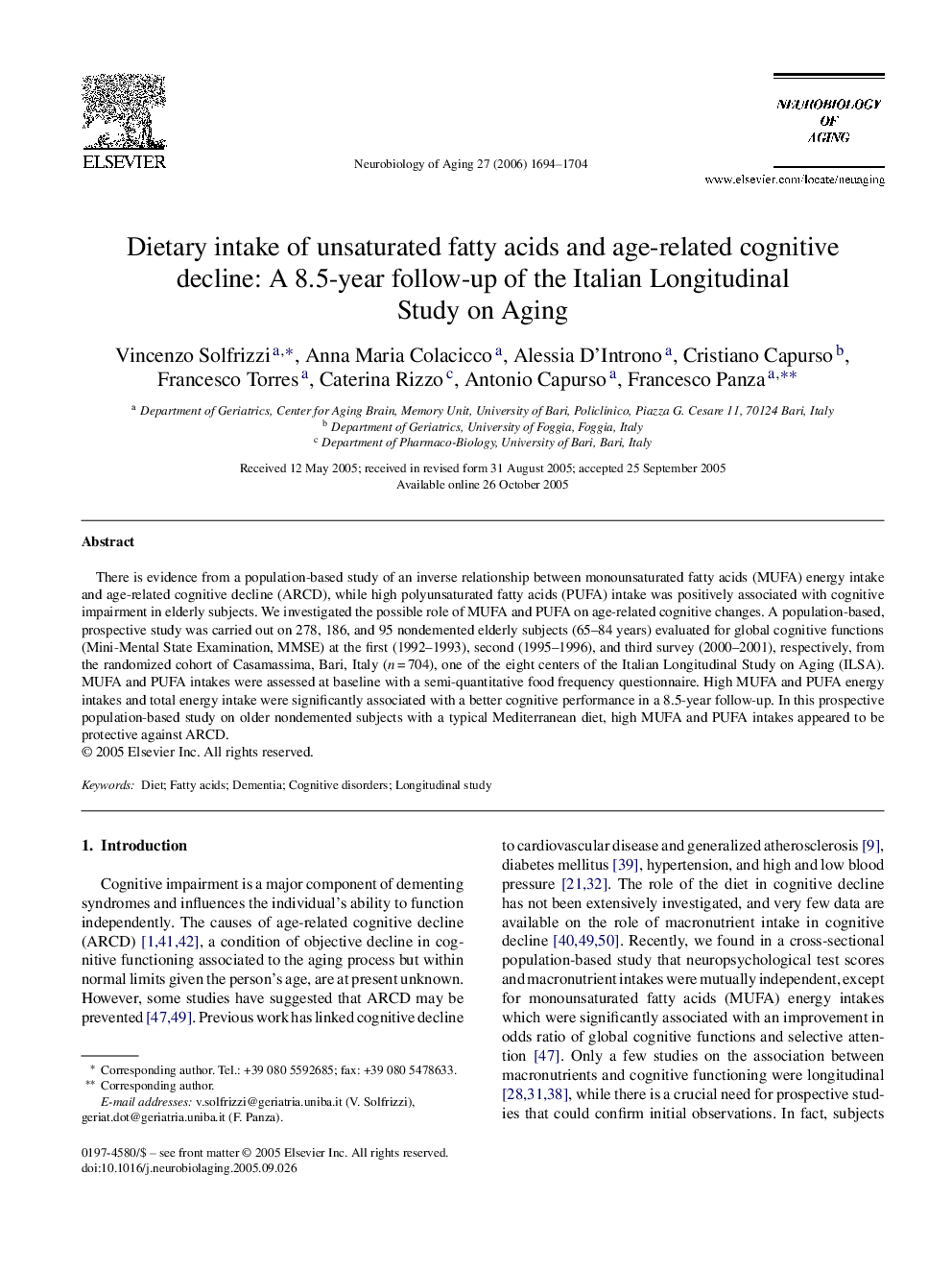| Article ID | Journal | Published Year | Pages | File Type |
|---|---|---|---|---|
| 328838 | Neurobiology of Aging | 2006 | 11 Pages |
There is evidence from a population-based study of an inverse relationship between monounsaturated fatty acids (MUFA) energy intake and age-related cognitive decline (ARCD), while high polyunsaturated fatty acids (PUFA) intake was positively associated with cognitive impairment in elderly subjects. We investigated the possible role of MUFA and PUFA on age-related cognitive changes. A population-based, prospective study was carried out on 278, 186, and 95 nondemented elderly subjects (65–84 years) evaluated for global cognitive functions (Mini-Mental State Examination, MMSE) at the first (1992–1993), second (1995–1996), and third survey (2000–2001), respectively, from the randomized cohort of Casamassima, Bari, Italy (n = 704), one of the eight centers of the Italian Longitudinal Study on Aging (ILSA). MUFA and PUFA intakes were assessed at baseline with a semi-quantitative food frequency questionnaire. High MUFA and PUFA energy intakes and total energy intake were significantly associated with a better cognitive performance in a 8.5-year follow-up. In this prospective population-based study on older nondemented subjects with a typical Mediterranean diet, high MUFA and PUFA intakes appeared to be protective against ARCD.
